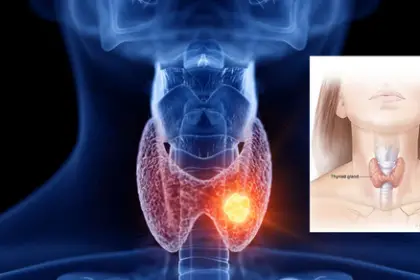Anxiety and panic attacks are more than just mental or emotional issues—they’re often physical symptoms of a brain and body out of balance. While therapy, mindfulness, and other techniques are valuable tools, one of the most overlooked causes of chronic anxiety is nutritional deficiency.
When your brain doesn’t have the raw materials it needs to regulate mood, calm the nervous system, and buffer stress, it’s no surprise that anxiety and panic can take over.
Let’s dive deep into the top 5 nutrients your brain absolutely needs to protect you from anxiety attacks and panic disorders—plus the best whole food sources and natural habits that help your mind stay balanced and resilient.
1. Magnesium – Your Brain’s Natural Relaxer
Magnesium is often called “nature’s chill pill,” and for good reason. It plays a vital role in over 300 biochemical processes in the body—many of which are directly related to your nervous system. One of its most important roles is regulating GABA, the neurotransmitter that slows down brain activity and helps you relax.
When magnesium is low, GABA can’t do its job effectively, leading to symptoms like restlessness, irritability, muscle tension, poor sleep, and anxiety. Studies have shown that magnesium deficiency is strongly linked to increased anxiety levels and panic attacks.
Top Magnesium-Rich Foods:
- Pumpkin seeds
- Spinach and Swiss chard
- Almonds and cashews
- Avocados
- Black beans
- Dark chocolate (70% cacao or higher)
Unfortunately, many people today are magnesium-deficient due to depleted soils, processed food diets, and high stress (which depletes magnesium even more). A supplement such as magnesium glycinate or magnesium threonate is often helpful, especially if you experience muscle tension, nervousness, or poor sleep.
Click here to visit Qualia to get Magnesium.
Discount code: healthywildfree
Click here to visit Bioptimizers Magnesium.
Discount code: healthywildfree
2. B-Vitamins – The Nervous System’s Best Friend
B-vitamins, especially B6, B12, and folate, are essential for synthesizing neurotransmitters like serotonin, dopamine, and norepinephrine—all of which affect your mood and emotional balance. When these nutrients are lacking, the brain struggles to regulate stress and can fall into patterns of anxiety and panic.
Vitamin B12 deficiency is particularly concerning, as it’s linked to depression, brain fog, and panic-like symptoms. Folate deficiency can also impair methylation, a process crucial for brain detoxification and mood regulation.
Top B-Vitamin Foods:
- Pasture-raised eggs
- Leafy greens (like spinach, romaine)
- Grass-fed beef liver
- Lentils, chickpeas, and black beans
- Nutritional yeast (especially rich in B-complex)
- Wild-caught fish
For those on vegetarian or vegan diets, B12 supplementation is usually necessary. Look for a methylated B-complex (containing methylcobalamin and methylfolate), which is more bioavailable and easier on your body to absorb.
The Best Supplement Source Of B-Vitamins is Organ Complex From Paleovalley, which is 15% off here right now by clicking here.
You can also get Organ meats from Heart & Soil by clicking here, with the discount code: HEALTHYW10 as well.
3. Omega-3 Fatty Acids – Anti-Anxiety Fats for the Brain
Your brain is made up of about 60% fat—and omega-3 fatty acids are among the most important. Two of them in particular—EPA and DHA—are key for brain structure, neurotransmitter balance, and anti-inflammatory protection.
Low omega-3 intake is strongly associated with mood disorders, especially anxiety and depression. EPA, in particular, has been shown to reduce anxiety symptoms, likely due to its inflammation-reducing effects on the brain and its role in serotonin signaling.
Top Omega-3 Foods:
- Wild-caught salmon and sardines
- Anchovies and mackerel
- Flaxseeds and chia seeds (plant-based ALA form)
- Walnuts
- Algae oil (for vegans)
If you’re not eating oily fish at least 2–3 times a week, consider an omega-3 supplement—preferably with at least 500–1,000 mg of EPA per day.
Supplement Recommendation: I like and take Fish Roe from Paleovalley which is a rich source of Omega 3 fatty acids. Click here to visit!
4. L-Theanine – The Calm-Alert Amino Acid
L-theanine is a unique amino acid found almost exclusively in tea leaves. It works by promoting alpha brain waves, which are associated with a calm but alert state—similar to meditation. It also boosts levels of GABA, serotonin, and dopamine, supporting a more stable mood without making you drowsy.
What’s amazing about L-theanine is how quickly it can work—people often feel more relaxed within 30–60 minutes of consuming it. That makes it a great short-term support for times of intense stress or early signs of a panic attack.
Best Ways to Get L-Theanine:
- Green tea (especially Japanese matcha, which is high in theanine)
- L-theanine supplements (100–200 mg as needed)
It can also be taken alongside caffeine to reduce the jittery effects while enhancing focus—one reason matcha feels so smooth compared to coffee.
Supplement Recommendation: The company HealthyCell has 3 formulas that have L-Theanine in it, REM Sleep, Calm Mood & Focus & Recall. All great products that are very bioavailable and work well. Click here to visit and get 20% off your order now!
5. Vitamin D – Sunshine for the Soul
Vitamin D isn’t just important for bone health—it acts more like a hormone, playing key roles in mood regulation, immune balance, and inflammation control. Low vitamin D levels are commonly found in people with seasonal affective disorder, generalized anxiety, and panic attacks.
Your brain has vitamin D receptors that help regulate neurotransmitters like serotonin. When you don’t get enough vitamin D—especially during winter months or if you’re indoors most of the time—your risk for mood disorders increases dramatically.
Top Sources of Vitamin D:
- Sunlight: 15–30 minutes of daily sun exposure on bare skin (without sunscreen)
- Wild-caught salmon, sardines, and egg yolks
- Cod liver oil
- Vitamin D3 supplements (with K2 for optimal calcium regulation)
If you’re feeling low, anxious, or stuck in a cycle of panic, simply getting outside into the sun could start shifting your mood. Nature walks and sunlight are one of the most underrated forms of medicine.
Bringing It All Together
Anxiety and panic attacks don’t mean you’re broken—they often mean your body and brain are asking for support.
Modern diets high in sugar and low in nutrients don’t provide the tools your nervous system needs to stay grounded. Add in chronic stress, poor sleep, and lack of sunshine, and it’s no wonder panic is on the rise.
By focusing on these five brain-essential nutrients—magnesium, B-vitamins, omega-3s, L-theanine, and vitamin D—you give your mind the nutritional foundation it needs to stay calm, clear, and resilient.
Quick Daily Checklist for Calm:
✅ Eat a handful of pumpkin seeds or leafy greens (Magnesium)
✅ Include an egg or some legumes (B-vitamins)
✅ Add wild-caught fish or omega-3s (EPA/DHA)
✅ Sip matcha or take L-theanine (fast-acting calm)
✅ Get 15–30 minutes of sunshine (Vitamin D boost)
Your mental health is not just about what you think—it’s also about what you feed your brain. When you nourish your body deeply, you create a solid foundation that makes it easier to ride the waves of life without being swept away by panic or fear.
Recommended Reading:




